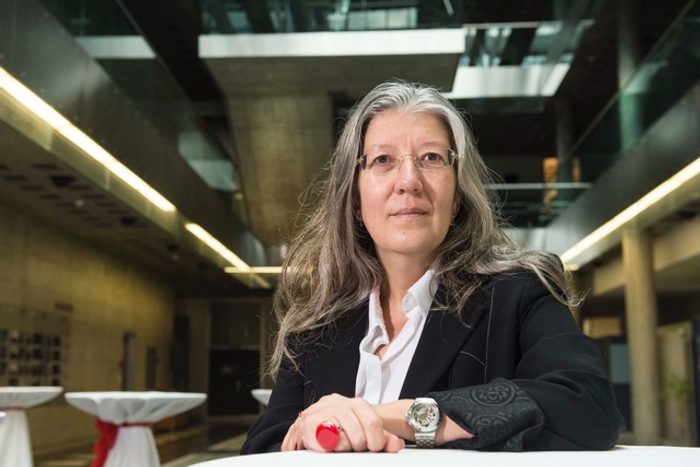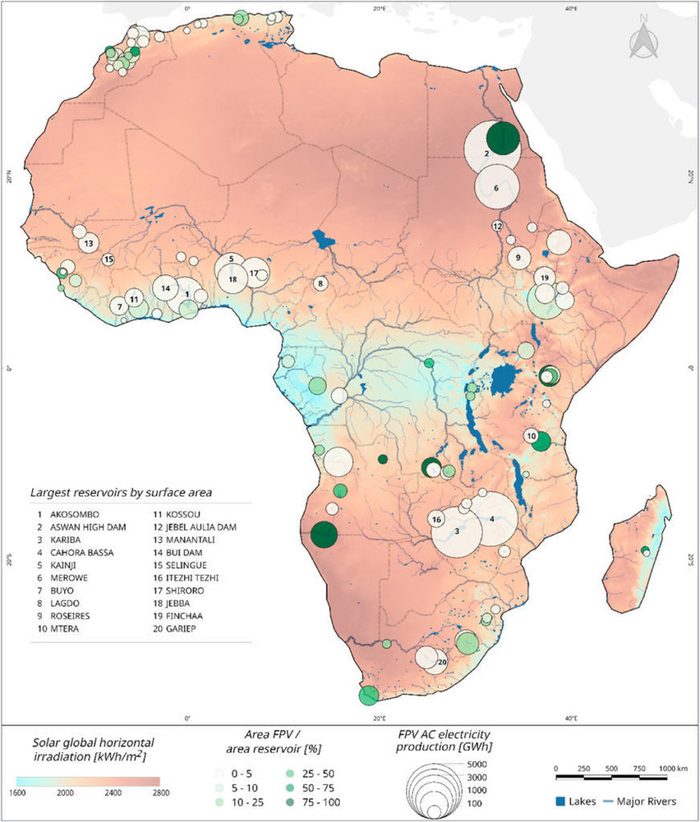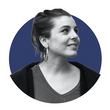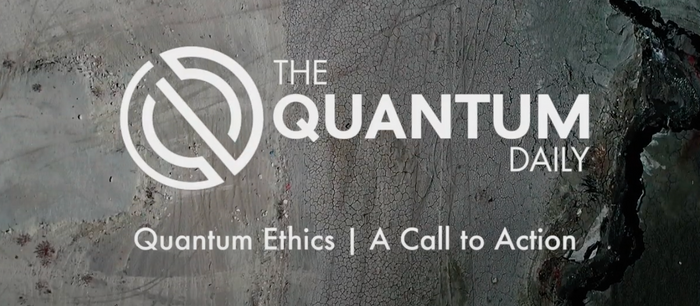Good morning, this is Zelda, and today we're tackling the gender divide in IT with University of Geneva Professor, Isabelle Collet.
Could floating solar panels help Africa double its hydropower capacity? Plus, with AI headlining many conference agendas - including AI for the Planet launched yesterday - researchers ask who's there to ensure new breakthroughs do not cross the ethical line. |

Professor Isabelle Collet (Photo: Sabine Papilloud)
|
|
Here's what else is happening
|

Reservoir location, floating solar coverage and floating solar annual electricity production for 108 of the reservoirs analysed.
|
|
|
Anticipatory reads by GESDA
|
|
|
Quantum for all.
Quantum computing seems as distant to our everyday world as it is hard to explain simply. But this is a false image. With many quantum computers being refined all over the world, the stakes are very high: such digital tools offer an incredible power to the entities, be they public or private, that will master this technology. Using quantum computers might well have many benefits, in various fields such as meteorology, medicine and material sciences. But the potential pitfalls can’t be minimised.
A new editorial platform designed to independently inform about advances in quantum research proposes a mini-documentary to raise awareness and generate discussion about the ethical decisions that face society in the quantum era. Give it a watch!
- Olivier Dessibourg
|

This selection is proposed by the Geneva Science and Diplomacy Anticipator
GESDA, working on
anticipating cutting-edge science and technological advances to develop innovative and inclusive
solutions for the
benefit of the planet and its inhabitants.
|
|
GS news is a new media project covering the world of international cooperation and development. Don’t hesitate to forward our newsletter!
Have a good day!
|

|
|
Avenue du Bouchet 2
1209 Genève
Suisse
|
|
|
| |











